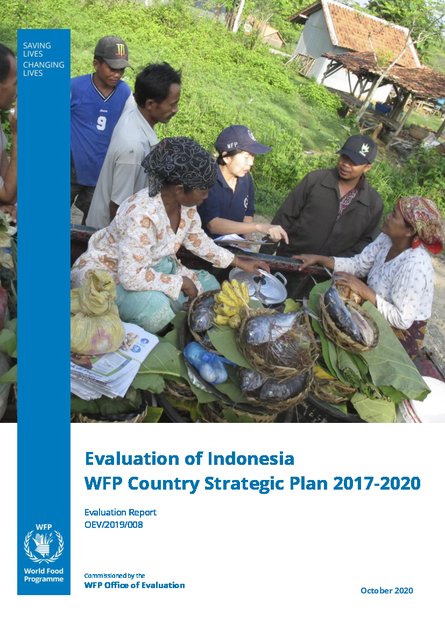
The evaluation was commissioned by the independent Office of Evaluation to provide evaluative evidence for accountability and learning to inform the design of the next WFP Country Strategic Plan (CSP) in Indonesia. Conducted between June 2019 and May 2020, the evaluation assessed WFP’s strategic positioning and role and the extent to which WFP has made the strategic shift expected by the CSP; WFP’s contributions to strategic outcomes; efficiency; and the factors that explain WFP performance.
The evaluation concluded that:
- The CSP has achieved positive results despite being implemented for only a few years with limited resources and facing implementation challenges. WFP is viewed by external stakeholders, including the Government, as an organization with technical expertise in emergency response, and food security and nutrition data collection and analysis.
- The implications of the CSP being focused solely on capacity strengthening had not been fully identified before the CSP was designed. The experience of CSP implementation highlights elements that should be adjusted to maximize the potential of the approach, including staff profiles and capacities, flexible funding, alignment with government systems, the arrangement of agreements, and the reporting system to reflect gains from country capacity strengthening.
- A need for the next CSP will be to determine what needs to be changed to facilitate effective national policy discourse.